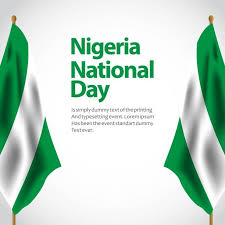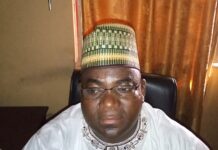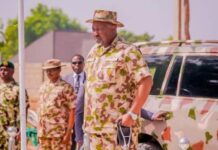If Democracy Must Benefit All Nigerians By Maymunah Abdulwahab
POLITICS DIGEST- The challenges surrounding local government elections in Nigeria highlight the urgent need for genuine democratic processes. Strengthening our democracy is not merely a matter of adhering to electoral timelines but involves creating an environment where elections are free, fair, and reflective of the will of the people.
One major concern is the significant influence that ruling parties exert over state electoral commissions. This issue requires immediate attention, as electoral bodies must operate independently and transparently, free from the control of state governments or political parties.
The lack of independence in these commissions raises questions about the integrity of the electoral process. When electoral bodies are beholden to political interests, the fundamental principle of impartiality is compromised.
Without genuine independence, no degree of fairness can ensure a trustworthy election process. We must advocate for reforms that enshrine the autonomy of electoral commissions, ensuring they are staffed by individuals committed to upholding democratic values.
Another critical issue is the systematic exclusion of opposition parties from the electoral process, often leaving them with no choice but to boycott elections. This exclusion stifles competition and limits the electorate’s choices, undermining the very essence of democracy. Civil society organizations, the judiciary, and independent monitors must unite to safeguard the space for opposition voices.
Democracy thrives on competition; without a robust opposition, the electorate is deprived of diverse ideas and effective governance. It is essential to foster an environment where all political parties can compete fairly, presenting their policies and visions for the future without fear of repression or marginalization.
Read Also:
Encouraging smaller parties to participate in the electoral process is a commendable approach to fostering political pluralism. However, mere participation is not enough; these parties require structural support to ensure their visibility and impact.
Media organizations can play a crucial role in providing fair coverage to all parties and candidates, ensuring their voices reach the electorate. A vibrant media landscape that covers a wide range of political perspectives can empower citizens to make informed decisions. An informed citizenry is essential for democracy, and this cannot be achieved if political debates are dominated solely by ruling voices.
By providing a platform for diverse viewpoints, the media can contribute to a more informed and engaged electorate. Finally, vigilance against electoral fraud is paramount in safeguarding the integrity of our democracy. Nigerian citizens must demand accountability from both their leaders and electoral bodies.
This calls for a culture of transparency, where electoral processes are monitored closely, and any malpractices are addressed swiftly. Civic education, grassroots mobilization, and the use of technology can create the transparency needed for elections to reach their full potential. For instance, employing technology such as biometric verification systems can help ensure the authenticity of voters and reduce instances of impersonation and fraud.
For our democracy to grow and thrive, it cannot be the sole responsibility of government officials; it must be a collective effort. Everyone—politicians, civil society, and ordinary citizens—must play their part in ensuring free and fair elections. Active citizen engagement, such as participating in electoral monitoring, raising awareness about voter rights, and holding leaders accountable, is vital for the health of our democracy.
Only then can we create a Nigeria where democracy works for all, fostering a society where every citizen feels valued and empowered to contribute to the democratic process.
*Maymunah U. Abdulwahab is an intern at PRNigeria and a student at Ahmadu Bello University, Zaria. She can be reached at: [email protected].*
















